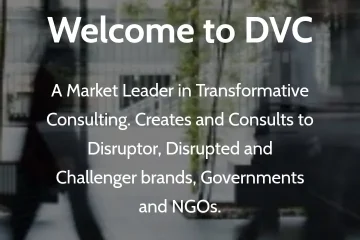In the ever-evolving landscape of disruptive technologies, organizations are continuously challenged to adapt, innovate, and remain on the right track towards sustainable growth and competitive advantage. The LOAF GenAI 24 framework, a beacon for strategic planning in the face of technological disruption, encapsulates its guiding philosophy in a powerful, metaphorical slogan: “Don’t let the devil board the train.”
The Essence of the Slogan
At its core, this philosophy emphasizes vigilance, ethical integrity, and strategic foresight. It serves as a reminder to organizations that as they embark on the journey of transformation and adaptation, they must remain alert to the potential negative influences that could derail their strategic objectives. These influences can manifest as ethical compromises, strategic missteps, or the failure to anticipate and mitigate risks effectively.
Strategic Vigilance
The first tenet of this philosophy underlines the importance of staying vigilant against threats and challenges that arise in a rapidly changing technological environment. In practice, this means constantly scanning the horizon for emerging technologies, competitive shifts, and market trends that could affect the organization’s trajectory. It involves not only identifying these potential disruptors but also assessing their implications and developing strategies to leverage or counteract them effectively.
Ethical Integrity
As organizations integrate advanced technologies such as Generative AI into their strategic frameworks, the imperative to uphold ethical standards becomes paramount. “Don’t let the devil board the train” is a call to action to ensure that technological advancements are harnessed responsibly, with a keen eye on the ethical implications of these innovations. This includes considering the impact on privacy, security, and societal norms, ensuring that the pursuit of innovation does not compromise ethical values or lead to unintended consequences.
Proactive Risk Management
The philosophy also highlights the necessity for proactive risk management. It’s about foreseeing the “devils” — potential vulnerabilities, regulatory challenges, and strategic risks — before they board the train of progress. Organizations must simulate scenarios, identify vulnerabilities, and anticipate technological shifts that could introduce risks. This proactive stance enables them to formulate contingency plans and strategies to navigate around these risks or mitigate their impact.
Keeping the Strategic Journey on Track
Ultimately, the message is clear: the journey towards leveraging disruptive technologies for strategic advantage is fraught with potential pitfalls and adversaries. However, by adhering to the principles of vigilance, ethical integrity, and proactive risk management, organizations can ensure that their strategic journey remains on track. It’s about making informed, ethical decisions that not only drive innovation and adaptability but also safeguard the organization’s core values and long-term success.
In conclusion, “Don’t let the devil board the train” is more than just a slogan; it’s a comprehensive philosophy that encapsulates the essence of strategic foresight in the age of disruption. By embracing this mindset, organizations can navigate the complexities of the technological landscape with confidence, ensuring that they not only survive but thrive in the anarchic flux of today’s digital world.
If you would like to know more email q.anderson@dvcconsultants.com or b.daly@dvcconsultants.com




0 Comments